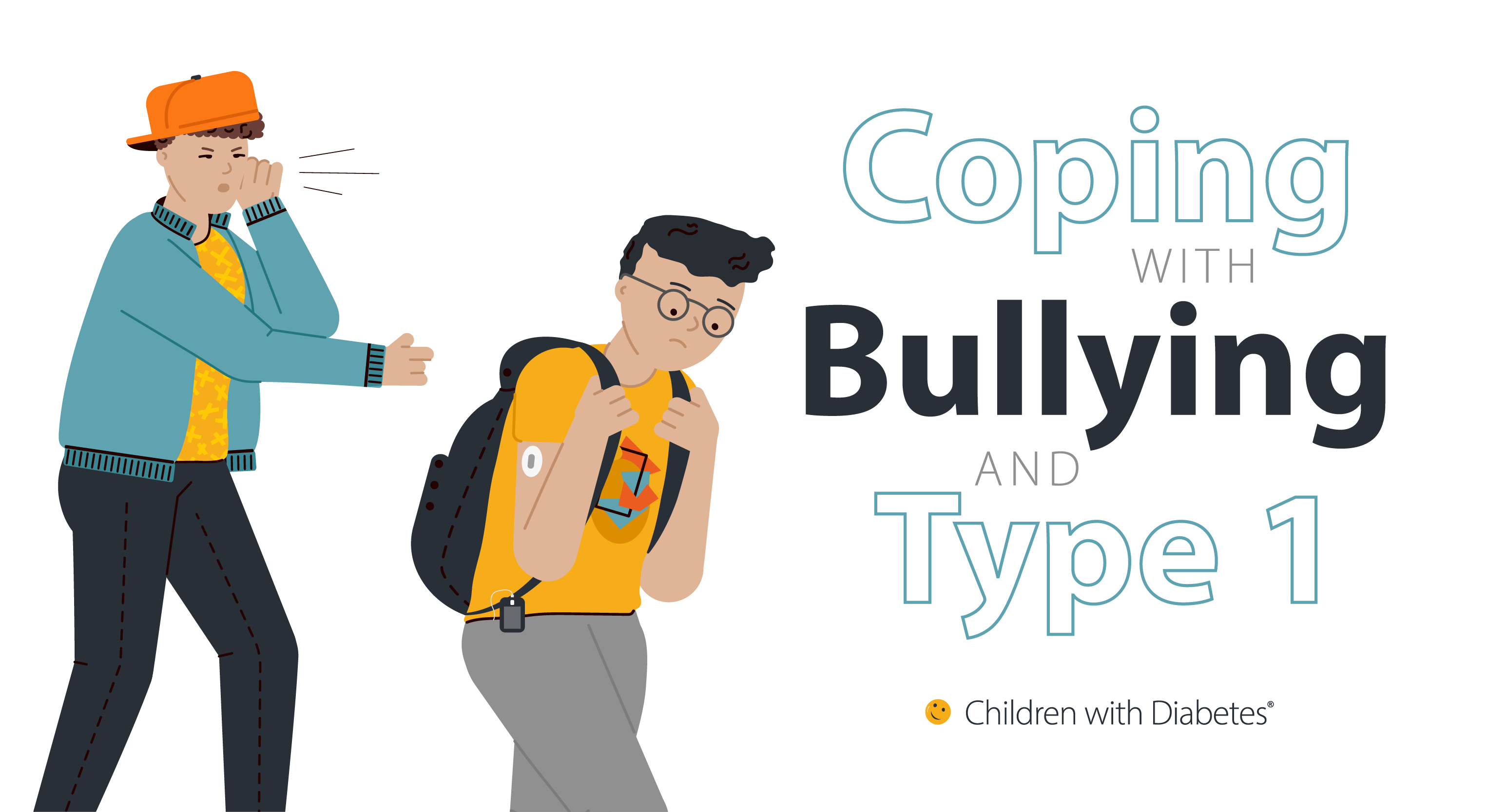Living with diabetes means that everyday life looks a little different than without diabetes. We need to count the carbohydrates in our meals, check our blood sugar, take insulin. Some of us wear devices that help with diabetes management, and we often have to take care of ourselves a bit more than other folks.
Diabetes and Bullying
When you’re young, with or without diabetes, there are many pressures to “fit in” and be like everyone else. People with diabetes often feel badly about being different. Furthermore, some people are bullied about their diabetes, which can be really disheartening. According to an article from 2019, studies have shown that children and adolescents with diabetes experience more bullying compared to those without diabetes.1
Consequently, some children, adolescents, and even adults, may attempt to hide their diabetes. This can also be a barrier to wearing diabetes technologies such as continuous glucose monitors (CGMs) or insulin pumps.2 Bullying can have a lot of negative effects on someone’s life. Two studies found that bullying was associated with not meeting blood sugar goals while many others found it correlates with diabetes distress.1
How to Identify Bullying
There are some signs that you can watch for in children who are experiencing bullying:3
- Changes in eating habits
- Difficulty sleeping
- Loss of interest in school or other activities
- Unexplained injuries
- Lost items such as clothes, books, etc.
- Feeling helpless or having lower self-esteem
- Worsening grades
- Self-destructive behaviors such as self-harm or talking about suicide
A young person with diabetes, CJ, described how she overcame bullying, including how she pretended to be sick, eating less, and feeling depressed. What helped her was meeting others with T1D which helped her accept her diabetes as a part of her.
How to Help
Everyone is different, and there is no magic button that will help your child, friend, or loved one with their bullying experience. However, there are some things that you can do –
- Recognize the warning signs and talk to the person experiencing bullying3
- Listen and talk to them, assure them it’s not their fault3
- Don’t tell the child to ignore the bullying, it can cause it to go on or even get worse in some situations
- Educate the school and other children about T1D4
- If your child feels comfortable, have them talk to their class about diabetes
- Reach out to the school for help, and encourage your child to do so if it happens again3,5
- Talk to the teachers, counselor or principal can help ensure the bullying is addressed
- If the school is not supportive, consider seeking support in your community and through the laws in your state or country
- Connect with a diabetes community where you and your child can have a safe space to discuss your experiences and seek advice from others who have had similar ones6
- Don’t forget to take care of yourself through this experience, too!
- This could be an in-person community or online
More Resources
Here are some other resources on bullying in general:
- Stopbullying.gov – a website dedicated to bullying in the U.S. with a lot of additional information
- Nemours Kids Health (kidshealth.org) has a lot of resources for parents, kids, teens and even educators
- The Bully Project (thebullyproject.com) has a video about bullying, a toolkit for kids to learn how to help if they witness bullying, and more
- For cyberbullying and safety online, connectsafely.org is all about interacting online
The Kids will be Alright
We cannot protect our children from everything, but, hopefully, we can show them the love and support that allows them to stay resilient in difficult times. In the beautiful article written by CJ, then age 12 with T1D, there is a wonderful final sentence where she wants other kids who have been bullied for having type 1 to know, “They will find friends who deserve them, and they are not alone.”6 Thanks for the inspiration, CJ!
- Relationship between bullying and type 1 diabetes mellitus in children and adolescents: a systematic review
- Barriers to Uptake of Insulin Technologies and Novel Solutions
- gov – What You Can Do
- What parents should know about bullying and living with T1D
- Bullying and Diabetes
- How I Overcame Bullying
Written and clinically reviewed by Marissa Town, RN, BSN, CDCES



